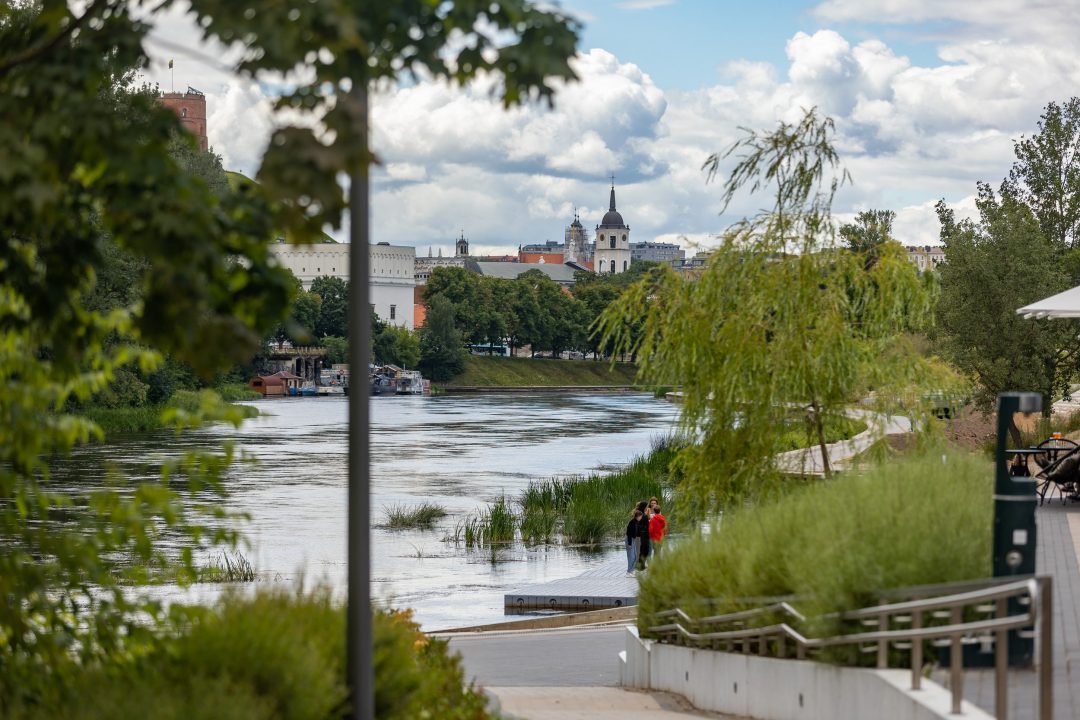
Photo: City of Vilnius
Vilnius named European Green Capital for 2025
09 October 2023
by Sarah Wray
Vilnius in Lithuania has been named by the European Commission as the European Green Capital for 2025.
The European Green Leaf 2025 awards for smaller cities went to Viladecans, Spain and Treviso, Italy.
Vilnius will receive a prize of €600,000 (US$631,617) and Viladecans and Treviso will receive €200,000 each to support their sustainability efforts.
The awards were announced at a ceremony in Tallinn, Estonia, which is the European Green Capital for 2023.
Virginijus Sinkevičius, European Commissioner for Environment, Oceans and Fisheries, said: “This ceremony follows a summer marked by floods and wildfires that caused devastation across Europe. Climate change will exacerbate these extreme weather trends, meaning cities will need to adapt to unpredictable weather as well as drastically cut their emissions.
“The answer has to be greener cities – cities with lower pollution, which care more for citizens’ well-being. That is exactly what today’s winners are doing.”
Why Vilnius?
The assessment of cities considers seven indicators: air, water quality, waste management and the circular economy, noise levels, the promotion of biodiversity, and climate change mitigation and adaptation.
The jury praised Vilnius’ “down to earth approach” and said its motto “Vilnius – the greenest city in the making” is guided by a clear vision and tangible actions.
They recognised that the Lithuanian capital has reduced emissions through measures such as increasing renewable energy sources and renovating heating infrastructure. The city aims to become climate-neutral by 2030.
The judges also said that Vilnius’ use of technology for citizen engagement and participation is innovative. This includes an app for citizens to engage in city management and planning.
Valdas Benkunskas, Mayor of Vilnius, commented: “Every year we pay more and more attention to fostering biodiversity, mitigating the effects of climate, more sustainable mobility and more efficient management of urban life.
“The vision for the development of our city is to remain open, innovative, not afraid to experiment.”
Mayor Benkunskas added that energy independence is key to Vilnius’ strategy.
“We are categorical on this,” he said. “We need to make sure that the city uses renewable energy sources and is not dependent on fossil fuels.”
Green Leaf cities
The jury highlighted Viladecans’ approach of inspiring behaviour change “through a culture of positivity and enthusiasm”.
The judges also recognised that residents and stakeholders at different levels in the city participated in decision-making processes, and that the city has made significant strides in renewable energy and energy efficiency.
Treviso impressed the jury with its use of storytelling and communication across generations, including using gamification to engage young people. The jury also recognised ambitious measures proposed by the city such as doubling the number of trees.
An international panel of seven independent urban sustainability experts evaluated each application for the awards and shortlisted five finalist cities. The finalists were interviewed by an international jury comprising representatives from the European Commission, Committee of the Regions, Covenant of Mayors Office, European Environment Agency, and European Environment Bureau.
The European Green Capital for 2024 is Valencia, as announced last year.







